Medication Side Effect Reduction Calculator
Personalize Your Plan
Enter your medication type and current habits to see potential side effect reduction
Results
Many people take medications every day-some for blood pressure, others for diabetes, cholesterol, or depression. But what if the side effects weren’t inevitable? What if simple, everyday changes could make those pills work better and feel easier to tolerate? The truth is, lifestyle changes aren’t just helpful-they’re often the missing piece in managing medication side effects. You don’t have to suffer through nausea, fatigue, weight gain, or muscle pain just because your doctor prescribed a drug. Science shows you can reduce those side effects significantly by adjusting how you live.
Move More, Feel Better
Fatigue from beta-blockers? Muscle aches from statins? These aren’t just side effects-they’re signals your body needs movement. A 2021 study in the Journal of the American College of Cardiology found that people taking statins who added just two short resistance training sessions per week cut their muscle pain in half. The key? Start small. Ten minutes of walking twice a day, five days a week, builds momentum without overwhelming you. Gradually increase to 30 minutes daily. You don’t need a gym. A brisk walk around the block, climbing stairs, or even gardening counts. The goal isn’t to run a marathon-it’s to keep your muscles active and your circulation flowing. Movement helps your body process medications more efficiently and reduces the buildup of inflammation that worsens side effects.Eat Smart, Not Just Less
What you eat doesn’t just affect your weight-it affects how your body handles drugs. Take warfarin, a blood thinner. If you suddenly start eating large amounts of kale, spinach, or broccoli, you could be reducing its effectiveness by up to 50%. That’s not a myth-it’s a well-documented interaction. The same goes for grapefruit juice. Just 200ml a day can spike statin levels in your blood by 15 to 50%, raising your risk of muscle damage. The fix? Consistency. Eat the same amount of vitamin K-rich foods every day, or avoid grapefruit entirely. For people on GLP-1 drugs like semaglutide (used for diabetes and weight loss), nausea drops from 73% to 29% when meals are smaller, slower, and eaten earlier in the day. Try eating 500 calories or less per meal, chew each bite 20 times, and avoid eating within three hours of bedtime. Your stomach will thank you.Sleep Is Medicine Too
Most people don’t realize their sleep schedule affects how their body breaks down drugs. The liver, which processes most medications, works best when your circadian rhythm is steady. Research from the National Sleep Foundation shows that getting 7 to 9 hours of quality sleep boosts liver enzyme activity by 22%. That means drugs like statins, antidepressants, and painkillers are metabolized more predictably-reducing side effects like dizziness, nausea, or next-day grogginess. Start by going to bed and waking up at the same time every day-even on weekends. Avoid screens an hour before bed. Keep your room cool and dark. If you’re on antidepressants, poor sleep can make weight gain worse. Fixing your sleep can help you avoid gaining 7 pounds in the first year, as seen in studies from WebMD.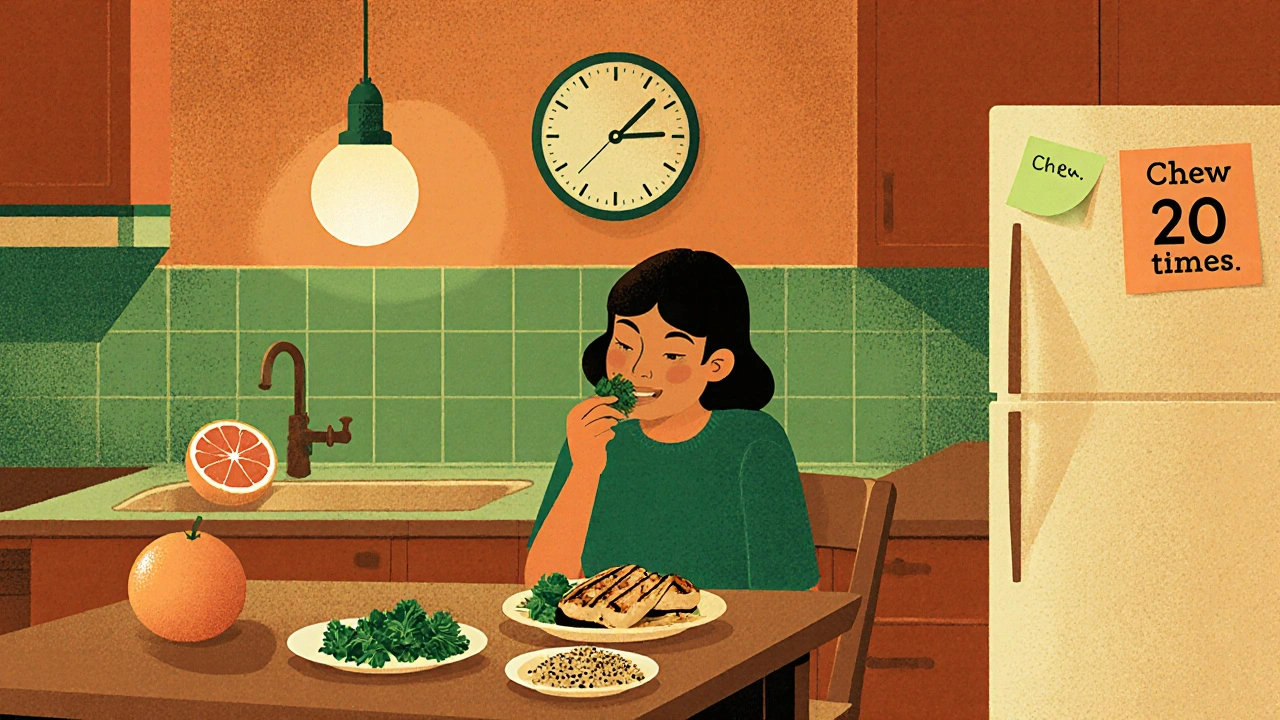
Stress Less, Meds Work Better
Chronic stress raises cortisol, which interferes with how antidepressants and blood pressure meds work. A 2021 study in JAMA Psychiatry found that people who practiced 30 minutes of mindfulness daily-whether through meditation, deep breathing, or simply sitting quietly-reduced their cortisol levels by 27%. That translated to a 31% improvement in antidepressant effectiveness and fewer side effects like weight gain, dry mouth, or emotional numbness. You don’t need an app or a class. Just sit in a quiet spot, close your eyes, and focus on your breath for five minutes, three times a day. Over time, your body learns to respond differently to stress-and so does your medication.Hydration and Timing Matter More Than You Think
Drinking enough water isn’t just for your skin-it’s critical for how your body handles drugs. Dehydration can make kidney-related side effects worse, especially with diuretics, NSAIDs, or certain diabetes meds. Women should aim for 2.2 liters daily; men, 3 liters. Sip water all day, not just when you’re thirsty. Timing matters too. Taking a medication with food can reduce stomach upset, but not all meds work that way. Some need an empty stomach. Check your prescription label. If you’re unsure, ask your pharmacist. A 2022 study in the Annals of Internal Medicine found that 34% of people had trouble sticking to lifestyle changes because they conflicted with their medication schedule. Write down your meds and meals. Plan your walks around your pill times. Small adjustments make big differences.What to Do When You’re Overwhelmed
Trying to change your diet, sleep, exercise, and stress levels all at once? That’s a recipe for burnout. Start with one thing. Pick the side effect that bothers you the most. Is it nausea? Focus on meal size and timing. Is it fatigue? Start with daily walks. Is it weight gain? Add protein to each meal-30 grams per meal, like eggs, chicken, tofu, or Greek yogurt. Once that change sticks for two weeks, add another. Most people see improvements in 6 to 8 weeks. You don’t need to be perfect. You just need to be consistent.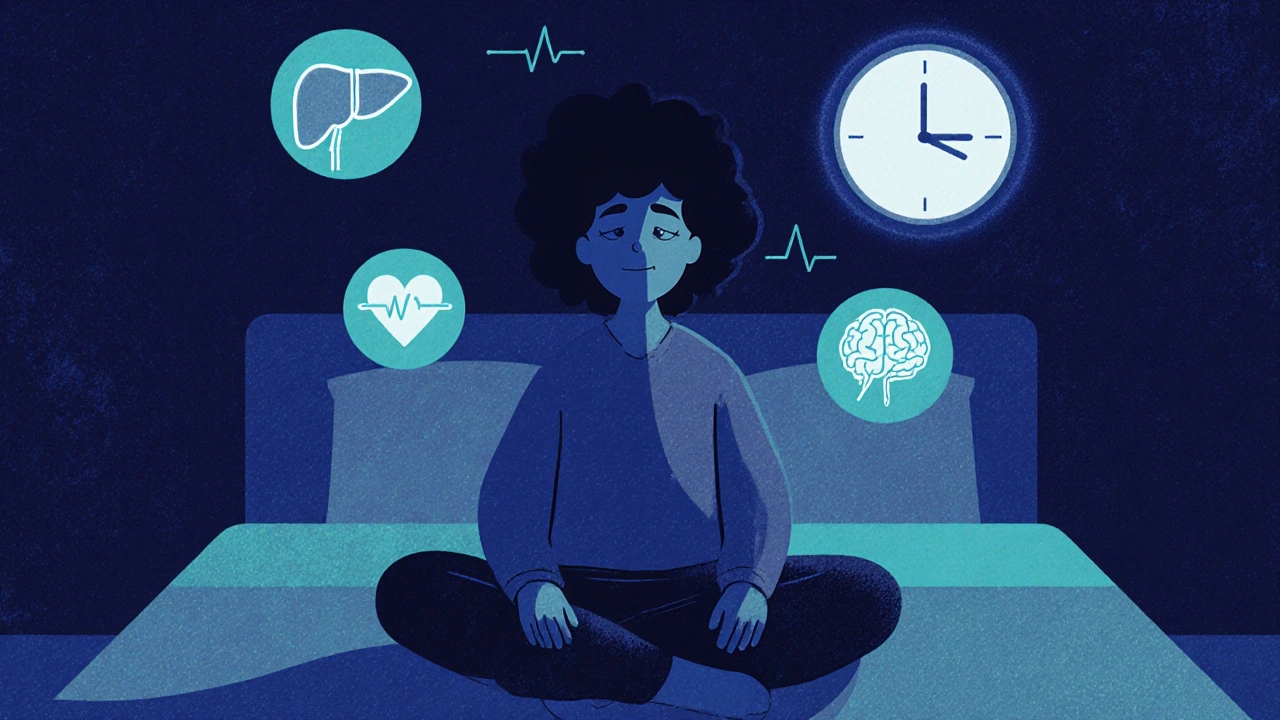
What Your Doctor Should Be Asking You
Too often, doctors adjust your dose because a side effect appears-not because the drug isn’t working, but because your lifestyle is interfering. A 2023 clinical guideline from the American College of Physicians found that 22% of cases where meds seemed ineffective were actually caused by lifestyle factors. Your doctor should ask you about your sleep, diet, activity level, and stress-not just your blood pressure or HbA1c. If they don’t, bring it up. Say: “I’ve been trying to eat better and move more. Could any of these changes affect how my meds work?” Most physicians now support this approach. In fact, a 2023 Medscape survey showed 87% of doctors already talk about lifestyle changes with patients. You’re not asking for extra help-you’re helping them give you better care.Don’t Stop Your Meds
This isn’t about ditching your prescriptions. It’s about making them work better. The FDA, American Medical Association, and Mayo Clinic all warn against stopping or lowering your dose without medical supervision. Rebound high blood pressure, uncontrolled blood sugar, or sudden anxiety can be dangerous. Lifestyle changes should complement your meds-not replace them. Think of them as the foundation. Your medication is the structure built on top. One supports the other. Together, they’re stronger.Real Results, Real People
At the Cleveland Clinic’s Lifestyle 180 program, patients with metabolic conditions cut their medication doses by 72% after following a simple plan: 45 minutes of daily movement, a Mediterranean-style diet with less than 50g of added sugar, 7.5 hours of sleep, and two 10-minute mindfulness sessions daily. People with statin side effects reported less pain. Diabetics saw better HbA1c control with lower metformin doses. People on antidepressants lost less weight-or even gained muscle instead. These aren’t outliers. They’re people who made small, smart changes and gave their bodies a chance to heal.Medications save lives. But they don’t have to come with a long list of unpleasant side effects. You have more power than you think. What you eat, how you move, how you sleep, and how you handle stress all shape how your body responds to drugs. Start with one change. Stick with it. Then add another. You’re not just managing side effects-you’re taking back control of your health.
Can lifestyle changes really reduce side effects from blood pressure meds?
Yes. Regular exercise-like 150 minutes of brisk walking per week-can lower systolic blood pressure by 5 to 8 mmHg. That’s as effective as one medication. The DASH diet, which cuts sodium to 1,500 mg daily, can lower it by 8 to 14 mmHg. Under a doctor’s supervision, this can mean reducing your dose or even stopping one pill.
Does grapefruit really interfere with statins?
Yes. Grapefruit juice blocks an enzyme in your liver (CYP3A4) that breaks down statins. This causes more of the drug to stay in your bloodstream, increasing the risk of muscle damage. Even one glass a day can raise levels by 15% to 50%. It’s safest to avoid it entirely if you’re on statins like atorvastatin, simvastatin, or lovastatin.
Why do antidepressants cause weight gain, and can I stop it?
Antidepressants can slow metabolism and increase appetite. Studies show people gain an average of 7.3 pounds in the first year. But combining 150 minutes of weekly moderate exercise with protein-rich meals (1.6g per kg of body weight daily) can cut that weight gain by two-thirds. Focus on lean meats, eggs, legumes, and dairy at each meal.
How long does it take to see results from lifestyle changes?
Most people notice improvements in 6 to 8 weeks. Sleep and hydration can show effects in days. Exercise and diet changes take longer as your body adapts. The key is consistency-not perfection. Even small daily habits add up over time.
Should I talk to my doctor before making these changes?
Absolutely. While lifestyle changes are safe, they can affect how your meds work. For example, eating more vitamin K can interfere with warfarin. Starting a new exercise routine might lower your blood pressure too much if you’re on beta-blockers. Always check with your doctor before making big changes, especially if you’re on multiple medications.
Can I replace my meds with lifestyle changes?
No. Lifestyle changes support your meds-they don’t replace them. Stopping medication without medical supervision can cause dangerous rebounds in blood pressure, blood sugar, or heart rhythm. Always work with your doctor to adjust your treatment plan safely.
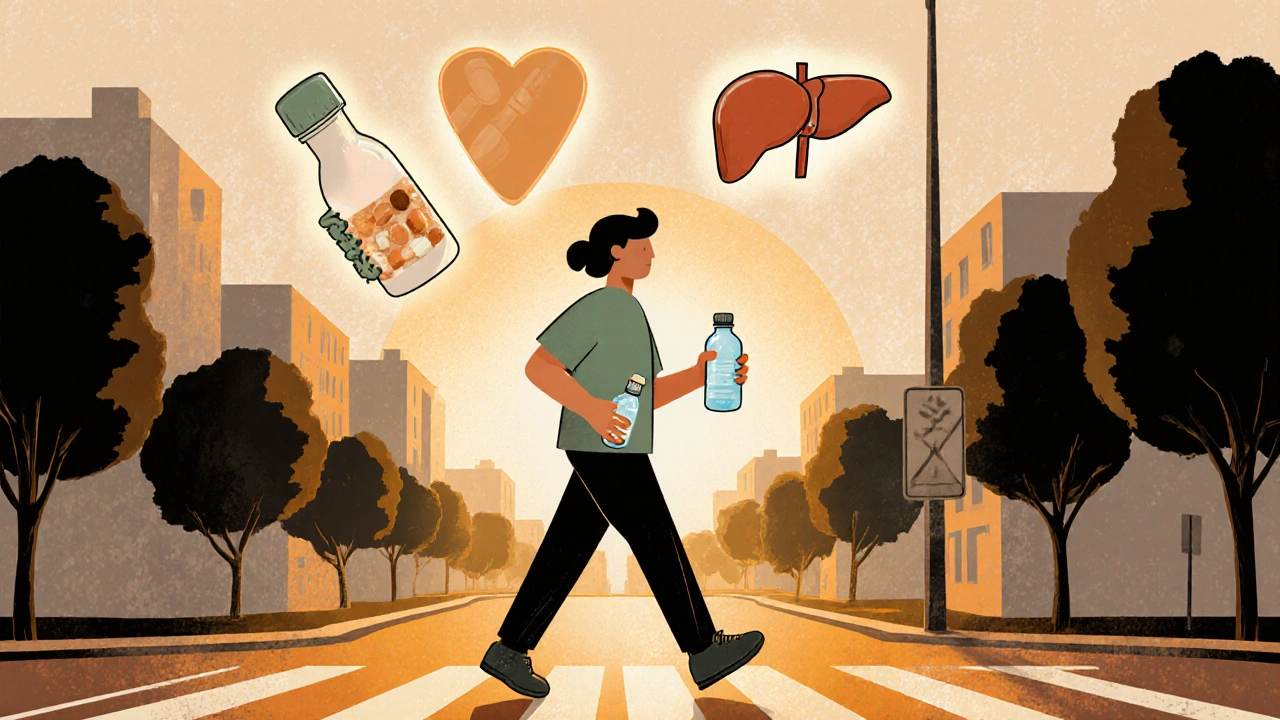

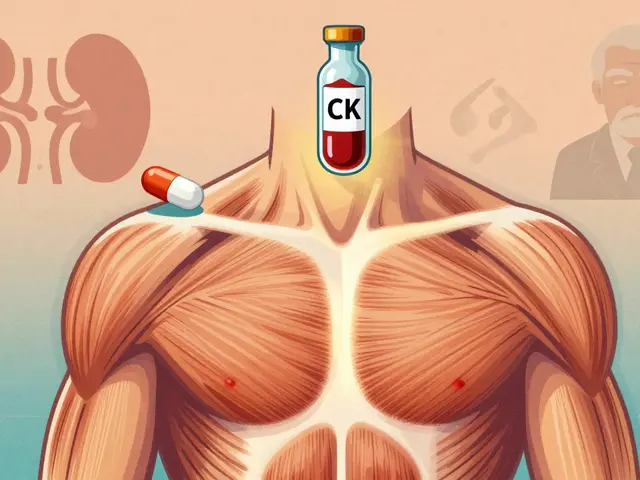
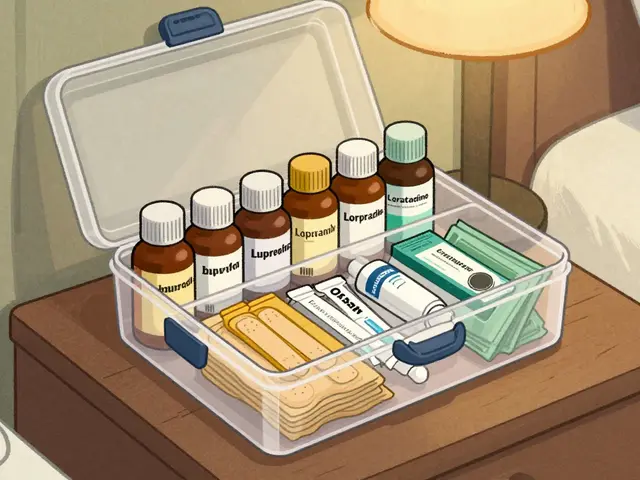

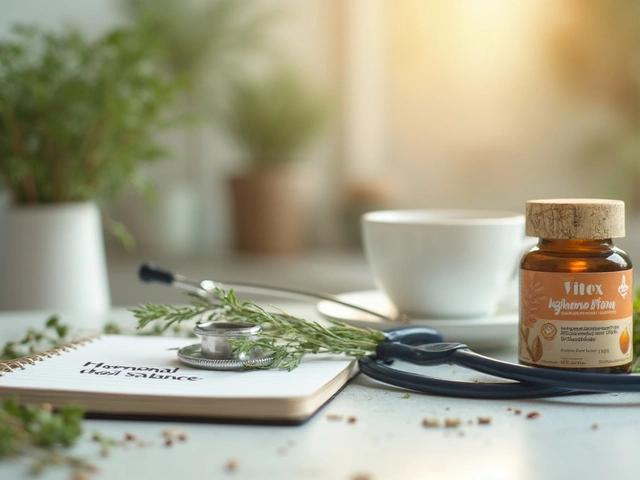
Brian Bell
November 14, 2025 AT 03:06Ryan Anderson
November 14, 2025 AT 23:03Eleanora Keene
November 15, 2025 AT 05:17Hrudananda Rath
November 17, 2025 AT 01:38Ashley Durance
November 17, 2025 AT 08:17Scott Saleska
November 18, 2025 AT 09:40Joe Goodrow
November 20, 2025 AT 05:24Nathan Hsu
November 21, 2025 AT 01:06